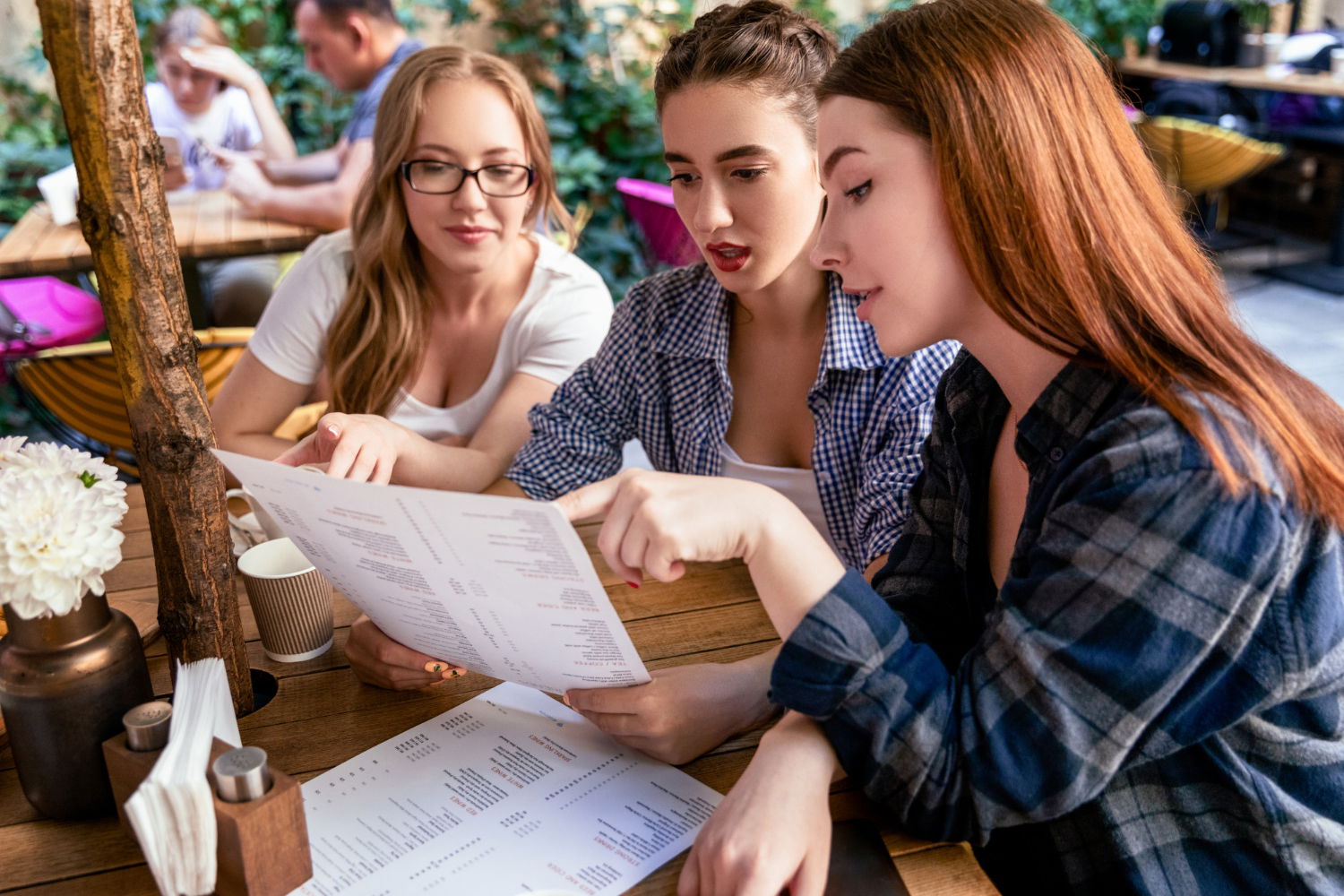The IB Global Politics Course Guide (First Examinations May 2026)

Katie has taught at a number of prestigious schools in the UK and Switzerland. She teaches IB Geography, History, Global Politics, TOK, and Religious Studies. She is also an Extended Essay moderator for Global Politics & Geography. Students appreciate her enthusiasm and breadth of subject knowledge. Read on to discover her IB Global Politics Guide. You can find her full profile here.
Article reviewed & updated by Kate, 13th June 2025
The IB Global Politics course offers an exciting and meaningful way to explore the political world around us, helping you understand the complex systems that shape our modern society.
In this guide, together with our IB Global Politics tutor, Katie, we will walk you through the key components of the 2026 syllabus, showing you why this subject is so important and how you can succeed. We’ll cover everything from understanding the syllabus and assessment structure to mastering the Internal Assessment (IA), giving you all the tools you need to thrive in IB Global Politics.
Need help with IB Global Politics?
Why Choose IB Global Politics?
The IB Global Politics course allows you to explore political systems, global challenges, and key issues like human rights, sustainability, and peace. It focuses on critically engaging with real-world events and developing skills essential for academic success and your future career.
Real-World Relevance and Global Awareness
Understanding global politics is important in today’s connected world. This course examines how political decisions shape everything from human rights to environmental issues and global security. It encourages you to get involved with current political events, making it a perfect fit for anyone interested in international affairs.
Skills You Will Develop
By studying IB Global Politics, you’ll develop key skills such as critical thinking, research, and analysis. The course pushes you to evaluate political ideas and arguments, helping you form your reasoned conclusions. These skills are in high demand across various fields, including law, journalism, international relations, and business.
University and Career Opportunities
Having a strong grasp of global politics can open up many career opportunities. Whether you aim to work as a diplomat, policy analyst, or journalist, this course lays the groundwork for success. Many universities value this course because it hones your analytical and research skills. These abilities are highly transferable and beneficial across a variety of fields. For students who want to strengthen their quantitative or scientific skills to complement Global Politics, consider also working with our IB Maths tutor or IB Physics tutor.
How Hard is IB Global Politics?
Like any IB subject, Global Politics can be challenging but also advantageous. How difficult it feels often depends on your engagement with the topic and your ability to dive into complex political ideas and case studies. The more you get involved, the more you’ll find that the subject opens up new perspectives and ways of thinking about the world.
SL and HL Difficulty Compared
IB Global Politics can be demanding yet fulfilling, depending on your interest in the subject and your ability to engage with complex political concepts and real-world case studies. The core content is the same for Standard Level (SL) and Higher Level (HL) students, but the depth of study differs.
While both SL and HL students in the IB Global Politics course engage in research-driven learning, HL students explore topics in greater depth and breadth. All students are required to investigate political issues through guided and independent research particularly in the Engagement Project. However, HL students undertake an additional extension on global political challenges, which demands more complex analysis and sustained inquiry. As a result, HL students face more intensive coursework that builds on the foundational research skills developed at SL.
Common Student Challenges and Misconceptions
A common misconception about IB Global Politics is that it’s an “easy” subject because it deals with contemporary issues. While it may seem accessible, students often struggle to balance theoretical knowledge with real-world applications. The course requires consistent study, critical thinking, and the ability to synthesize diverse viewpoints and case studies. So, while it’s fascinating and relevant, it requires effort to succeed.
IB Global Politics Syllabus
The 2026 syllabus for IB Global Politics brings some exciting updates that will give you more flexibility and depth in your studies. The structure is centred around core topics and thematic studies, which are designed to help you take the theory you learn and apply it to real-world issues. This approach will not only deepen your understanding but also allow you to engage with global politics in a more meaningful way.
Core Units and Key Concepts
The IB Global Politics course begins with the core theme of “people, power, and politics,” which ties everything together. You’ll explore four key political concepts: power, sovereignty, legitimacy, and interdependence. These concepts are the backbone of the course, providing you with the necessary tools to analyse political systems and current global issues critically.
In fact, Katie explains that “the number of key concepts was reduced from 16 in the old syllabus to 4 as examiners felt students merely name checked the concepts rather than exploring them. So, ensure you are confident with these 4 key concepts and how they relate to your chosen case studies”.
Case Studies and Real-World Applications
One of the most engaging parts of the course is using case studies. These real-world examples let you apply political theories to actual situations, from international conflicts to global economic crises. By analysing various case studies, you’ll gain a broader and more informed perspective on global politics, helping you make connections between theory and practice.
A top tip from Katie is to “Choose the case studies you will revise for exams carefully – many of them can be used to illustrate multiple concepts e.g. burning down rainforests touches on borders, sovereignty, development and the role of the international community.”
Engagement Project and HL Extension
The engagement project is an important element of the course. In this project, you explore a political issue that interests you through hands-on, experiential learning.
For HL students, this takes a step further with extended research into global political challenges. Katie explains that HL students will write 400 more words worth 6 of the 30 marks. You apply your findings to propose potential solutions to real-world issues, which will give you a deeper, more practical understanding of global politics. In order to secure top marks, Katie says to be sure to evaluate the recommendations you propose.
IB Global Politics Assessment Structure
The IB Global Politics assessment structure tests your ability to think critically and apply political concepts to real-world situations. Standard Level (SL) and Higher Level (HL) students are assessed through internal and external assessments, showcasing your understanding in various ways.
Internal Assessment
The Internal Assessment (IA) is a crucial part of your course. It focuses on an Engagement Activity where you explore a political issue that interests you. You’ll gain a deeper understanding of the topic through research and interactions with relevant individuals or groups.
This is an excellent opportunity to enhance your research and analytical skills while connecting theory to real-world practice. Give it the attention it deserves, as it plays a significant role in developing your critical thinking and knowledge of global politics.
External Assessments
External assessments in IB Global Politics consist of Papers 1, 2, and 3 (HL only), each designed to evaluate students’ understanding, critical thinking, and ability to apply political concepts to real-world issues.
Paper 1
This paper is about demonstrating your ability to engage critically with political sources and clearly understand the key concepts. Ensure you’re comfortable interpreting sources and linking them to the theories and ideas you’ve studied.
Katie’s tip: All questions will be drawn from the core themes. The material to answer the first 3 questions can all be found on the paper.
Paper 2
This exam tests your ability to integrate and apply knowledge to real-world political situations. It’s essential to connect theory to current events and issues. You need to consider how the content you’ve learned can be applied beyond the classroom.
Katie’s tip: Remember you will have to answer 2 questions, one from section A and one from section B. Section A will be thematic and section B will require you to integrate your knowledge.
Paper 3 (HL Only)
This is for higher-level students only. It’s a stimulus-based paper focusing on global political challenges. You’ll need to draw from your case study research to respond to questions, showing your ability to synthesize complex political concepts and propose solutions. This paper tests how well you can apply your research to broader political issues and think critically about potential solutions.
Katie’s tip: As a minimum you will need to know 2 topics of the 8 with 2 case studies.
The Internal Assessment (IA) in IB Global Politics
The Internal Assessment (IA) is a significant part of the IB Global Politics course and a great chance to dive into a political issue that interests you. It’s all about doing independent research and developing a deeper understanding of a political challenge or situation.
What is the Engagement Project?
This component allows you to delve into a political issue by directly engaging with individuals or organizations actively involved in addressing it. For example, you might collaborate with a local NGO working on environmental conservation or participate in a campaign tackling human rights violations. This hands-on involvement offers valuable insight into political systems and real-world challenges.
For both SL and HL students, the write-up follows a similar format, but remember, HL students are required to include an additional 400-word recommendation section. In this section, you’ll evaluate potential solutions to the issue you’re exploring. Be sure to incorporate this extra detail into your work!

Updated Criteria and Assessment Focus
When it comes to assessment, IA is evaluated using several key criteria. You’ll need to explain and justify your chosen political issue, analyse and synthesise relevant information, and evaluate potential solutions. If you’re a Higher Level (HL) student, you’ll also need to provide a well-thought-out recommendation based on your findings, showcasing your ability to analyse on a deeper level.
Tips for Choosing a Strong Political Issue
Choosing the right political issue is significant for success in your IA. You’ll want an issue that’s both relevant and complex enough for a detailed investigation. Selecting an issue that offers multiple perspectives is also helpful, as this will provide you with plenty of material to work with when writing your report.
Katie advises to keep in mind that “your research is to enhance your understanding of the issue – the project itself is central. Similarly do not waste words describing what you did, use them to explain how it deepened your understanding of the political issue.”
IB Global Politics SL vs HL: Which One to Choose?
When deciding whether to take IB Global Politics at SL or HL, consider several factors, including interest in politics, academic strengths, and long-term goals.
Main Differences in Content and Assessment
HL students cover all the content of the SL course, but with greater depth. They also take on additional responsibilities, including more extensive case study research and the extended inquiry into global political challenges. The assessment for HL students is also more comprehensive, with an additional Paper 3 focused on global political challenges.
Time Commitment and Workload
HL requires a greater time commitment. While SL students are expected to spend approximately 150 hours on the course, HL students will spend around 240 hours. This is due to the added complexity and extended research required for the HL extension and Paper 3.
Who Should Take HL?
HL is best suited for students with a strong interest in global politics and are prepared for a more in-depth study. Katie recommends it as a good choice for those considering careers in international relations, law, or politics, as it offers a more comprehensive understanding of the subject. “HL gives you an extra 80 taught hours to consider up to 8 topics – from borders to identity to poverty.”
IB Global Politics Grading System
In IB Global Politics, your grade will come from both internal and external assessments, and the final grade will be on a scale of 1 to 7. This means your performance in Papers 1 and 2 and the Internal Assessment (IA) will all count towards your final score. If you’re in the Higher Level (HL) course, you’ll also need to take Paper 3, which adds an extra layer of challenge. Keep track of how each component contributes to your overall grade so you can stay focused on what matters most.
What is a Good Score in IB Global Politics?
Achieving a strong IB Global Politics score can boost your academic and career prospects, so it’s important to approach the course with a solid plan.
Looking at the recent trends, the average grade for IB Global Politics has been around 4.8 for SL students and 5.0 for HL students. While this suggests that the course is challenging, it’s manageable with the right strategies. If you’re aiming for top universities, especially those in the UK and the US, a higher score is often required for competitive programs like Politics, International Relations, and Law.
How IB Global Politics Tutors Improve Your Score
Achieving a 6 or 7 in IB Global Politics requires focus, dedication, and a solid plan. You’ll boost your chances of success by mastering the syllabus, staying updated on current events, practising past papers, and working with TutorsPlus.
Katie, and our team of IB Global Politics Tutors can help refine your essay-writing, develop strong arguments, and apply theory to real-world situations. In Katie’s experience, students can often feel confused by terms such as neoliberalism, for example. “Talking the theories through with your tutor and seeing how they can be applied to the case studies you are working on really helps bring the theories alive.”
We’ll also guide you through the syllabus, highlight key areas for improvement, and ensure you’re prepared for both assessments and exams. You can check our pricing plans to choose a package that suits your needs.
A,H,.one of our happy parents, gave this amazing testimonial about our service:
“TutorPlus has been our partner in supporting the education and preparation of our 2 daughters for IB exams, IA and counseling sessions. Excellent tutors, super fast response and flexibility.”
With your consistent effort and our expert guidance, your performance will improve significantly.
Recommended Resources for IB Global Politics
To succeed in IB Global Politics, it is important to use various study materials and resources. A big difference Katie notes about this subject is that “Global Politics is very much a live subject and you might find you use your textbook much less than other subjects. Podcasts, journal articles and the news are your textbook”.
Based on her experience, these are her top tips for working effectively with diverse study materials.
Best Textbooks and Websites
Using textbooks recommended by your IB teacher is crucial for mastering the syllabus. Online resources like Khan Academy and Coursera also offer valuable supplementary content.
Here are two IB approved texts:
Global politics for the IB Diploma by Fugill et. al (2024). Hodder Education. Here is an online sample.
Global Politics Course Companion by Mooij et. al (2024). Oxford University Press. Here is an online sample.
Study Guides and IB Past Papers
Study guides help break down the syllabus, while IB past papers allow students to practice exam techniques and get a feel for the types of questions that may appear in the exams.
Katie just says to be aware that because “the specification has changed for first teaching in August 2024 you will not have any past papers. You can refer back to papers from past series – just beware of the different rubrics.”
YouTube Channels and Podcasts
Several YouTube channels and podcasts offer in-depth explanations of political concepts and global events, helping students contextualise what they are learning in real-world terms. Make sure you mix different sources to get a variety of perspectives on a topic.
BBC The Inquiry: Short (20 min), question‑driven episodes examining current global dilemmas; IB tutors often recommend this.
Throughline (NPR) – Explores historical context behind today’s conflicts, useful for HLX and assessing patterns.
FAQ About IB Global Politics
Can I take IB Global Politics without prior experience?
Yes, IB Global Politics welcomes students with all levels of political knowledge. The course gradually develops essential knowledge and skills throughout the syllabus.
How many case studies should I prepare?
Studying several case studies that explore diverse global political issues will strengthen your IA and other assessments. Try to prepare at least two or three well-developed examples.
Can I self-study for this subject?
Although self-study can work, getting support from a tutor or teacher helps you grasp complex political ideas and stay on track with coursework.
How is the IA marked?
Examiners assess the IA using criteria like explanation, analysis, research, and evaluation. HL students must also include a recommendation section.
What are common pitfalls in exams?
Katie says firstly, students often struggle with integrating theory with real-world examples. Also, students often fill their essays with excellent information but fail to formulate an argument. Plan your response to the question first and insert your case studies once you have decided what your well reasoned argument will be.
What other IB subjects pair well with Global Politics?
Subjects such as History, Economics, and Geography complement IB Global Politics, as they share thematic connections in areas like development, sustainability, and international relations.
How often does the syllabus change?
The IB periodically reviews and updates its syllabus. IB introduced the most recent changes to the Global Politics course in 2024, with the first exam scheduled for May 2026.
Are group projects involved?
While the course involves discussions and collaborations, much of the work is individual, particularly the IA and external assessments.
How does this course connect to Theory of Knowledge (TOK)?
Global Politics connects with TOK by exploring knowledge questions related to political systems, sovereignty, and ethics in global affairs.
Final Thoughts
IB Global Politics can be challenging but rewarding, offering valuable insights into global political systems and issues. The right resources and a solid study plan will help you confidently tackle both internal and external assessments. This course provides essential skills for political, law, or international relations careers. Scoring a 6 or 7 strengthens your application and opens doors to top programs. For personalised tutoring that can help you refine your skills and understanding of key concepts, contact TutorsPlus at 022 731 8148 or . Katie and our team of Global Politics tutors are looking forward to supporting you! We also provide a free trial so you can get a glimpse of how to stay consistent and achieve the best results!






